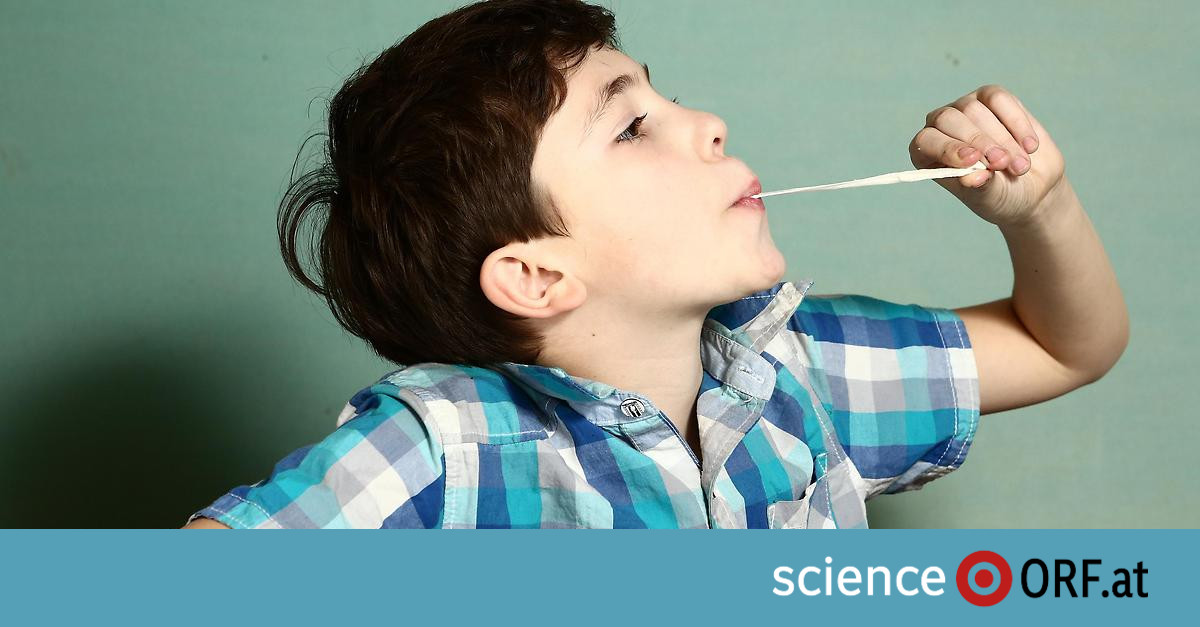Claim: Swallowed gum sticking to the stomach.
classification: mistake.
German Society of Digestive and Metabolic Disorders (DJVS) gives the obvious: “Gum does not stick to your teeth in your mouth nor does it stick to the walls of your esophagus or stomach when you swallow. Nor after that in the small and large intestines.”
But why not? After all, gum also sticks to the bottom of school desks – and it’s not easy to remove from hair either. “The mucous membranes of the entire digestive tract are covered with a layer of fluid that prevents this,” says doctor and DGVS spokesperson Birgit Terjung. Digestible components are broken down by acids and enzymes – and do not clog the stomach. The so-called indigestible gum base, which makes the gum sticky and chewy, is excreted in bowel movements.
Claim: Intentional staring can last forever.
classification: mistake.
Strabismus is most often a persistent or recurring misalignment of one or both eyes, according to the Professional Association of Ophthalmologists in Germany (BVA) He writes. The eyes do not look in the same direction. In order for us to see spatially, both eyes must look at the same place. According to BVA, a slightly different image is created in both eyes. These two images then merge in the brain to form a single visual impression.
When people stare, their visual axes do not meet in the same place. “The difference between the two images presented by the eyes becomes too great. These elements can no longer be properly aligned in the brain. As a result, spatial perception is not possible and those affected see disturbing double images.” “Temporary, deliberate, conscious, and usually effortful strabismus” results in diplopia vision, but generally does not lead to permanent damage, according to ophthalmologist Horst Helbig of the University Hospital Regensburg.
Claim: Reading in the dark harms your eyes.
classification: TRUE.
“Reading in poor light in childhood is a risk factor for developing or worsening myopia,” says ophthalmologist Helbig. In one Stady From the Queensland University of Technology in 2014, researchers came to the following conclusion: Children who spend more time outside in bright light have better eyesight than those who do so less. This is often short-sighted.
ClaimWhoever sits crooked becomes a hunchback.
classification: mistake.
To prevent back problems, perfect posture is not necessarily important. It’s more about getting enough exercise in daily life (Dgo). People need muscle to stabilize the spine – and exercise is important for this. You have to move away from the only idea of correct sitting and standing posture meaning a straight back. Children “have to sit hunched over for a long, long time until they get a hunchback.” This doesn’t happen when they spend the afternoon sitting crookedly doing their homework.

“Food practitioner. Bacon guru. Infuriatingly humble zombie enthusiast. Total student.”







More Stories
An Israeli delegation for ceasefire talks and hostage release in Cairo
A raid on AfD man Maximilian Krah
Missile problems prevent Starliner from taking off